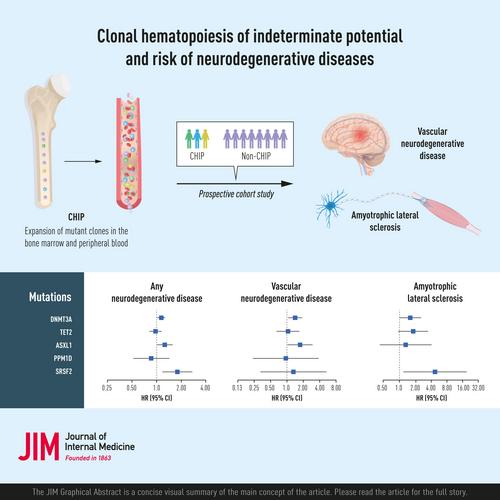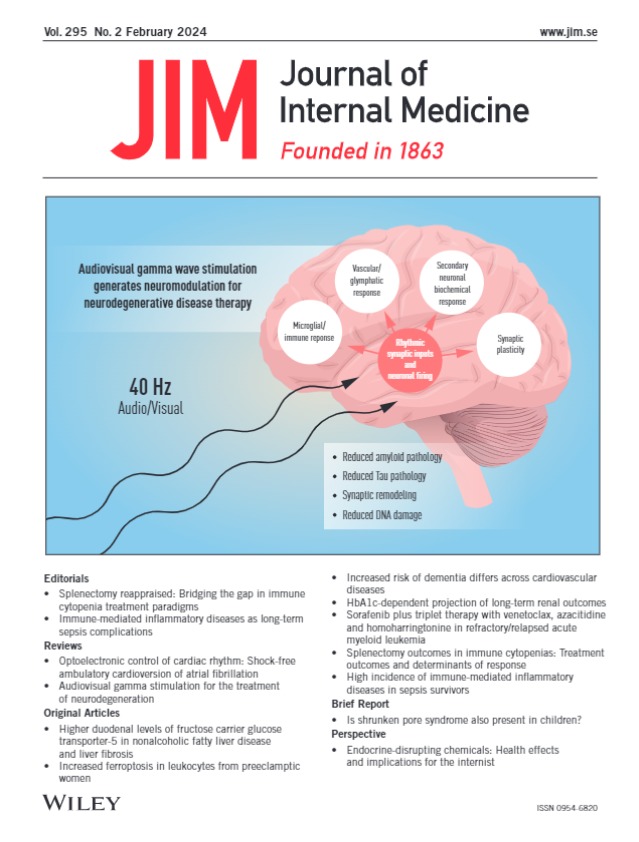Little is known regarding the association between clonal hematopoiesis of indeterminate potential (CHIP) and risk of neurodegenerative diseases.
To estimate the risk of neurodegenerative diseases among individuals with CHIP.
We conducted a community-based cohort study based on UK Biobank and used Cox regression to estimate hazard ratios (HRs) and 95% confidence intervals (CIs) for the risk of any neurodegenerative disease, subtypes of neurodegenerative diseases (including primary neurodegenerative diseases, vascular neurodegenerative diseases, and other neurodegenerative diseases), and specific diagnoses of neurodegenerative diseases (i.e., amyotrophic lateral sclerosis [ALS], Alzheimer's disease [AD], and Parkinson's disease [PD]) associated with CHIP.
We identified 14,440 individuals with CHIP and 450,907 individuals without CHIP. Individuals with CHIP had an increased risk of any neurodegenerative disease (HR 1.10, 95% CI: 1.01–1.19). We also observed a statistically significantly increased risk for vascular neurodegenerative diseases (HR 1.31, 95% CI 1.05–1.63) and ALS (HR 1.50, 95% CI 1.05–2.15). An increased risk was also noted for other neurodegenerative diseases (HR 1.13, 95% CI 0.97–1.32), although not statistically significant. Null association was noted for primary neurodegenerative diseases (HR 1.06, 95% CI 0.96–1.17), AD (HR 1.04, 95% CI 0.88–1.23), and PD (HR 1.02, 95% CI 0.86–1.21). The risk increase in any neurodegenerative disease was mainly observed for DNMT3A-mutant CHIP, ASXL1-mutant CHIP, or SRSF2-mutant CHIP.
Individuals with CHIP were at an increased risk of neurodegenerative diseases, primarily vascular neurodegenerative diseases and ALS, but potentially also other neurodegenerative diseases. These findings suggest potential shared mechanisms between CHIP and neurodegenerative diseases.



